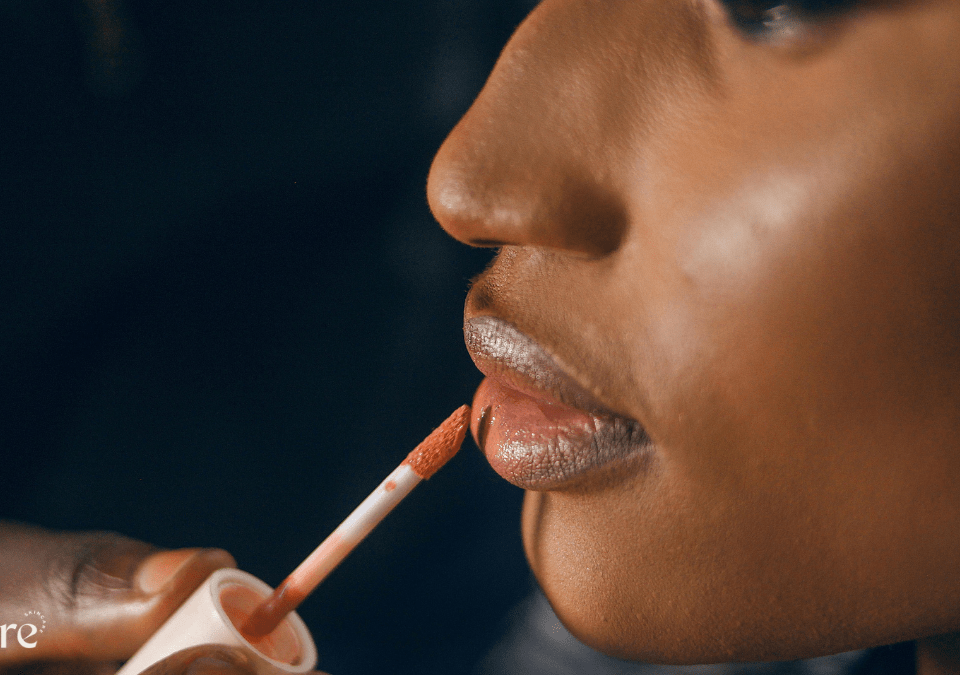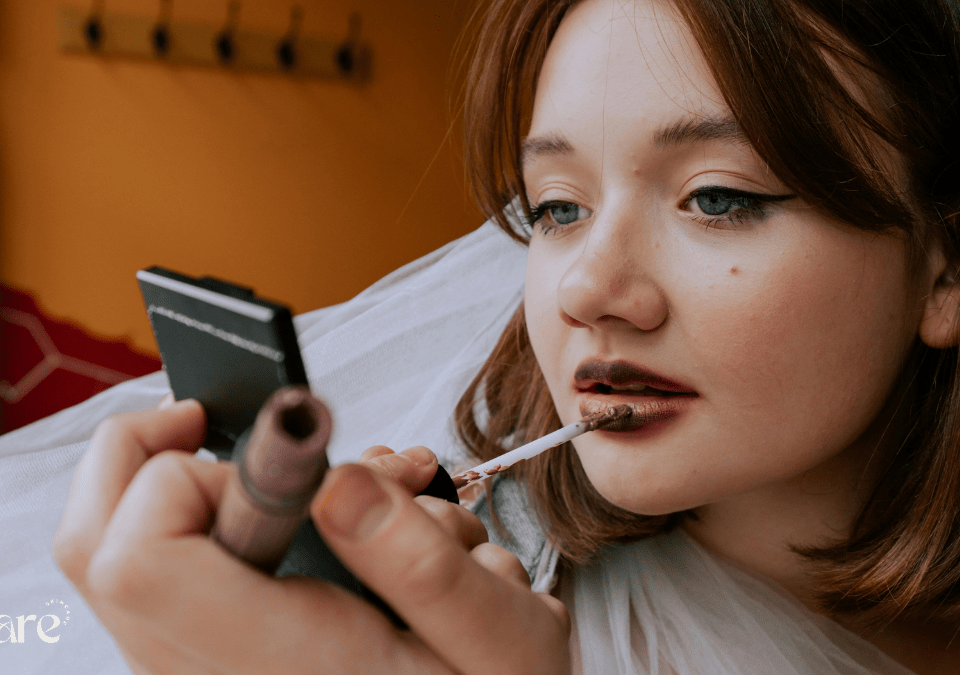Magnesium is a vital mineral for skin health, offering benefits like reduced inflammation, improved hydration, and collagen support. Whether through foods like leafy greens and nuts or supplements like Magnesium Glycinate, maintaining adequate magnesium levels can lead to healthier skin and hair. Discover how magnesium works, its benefits for women, and why taking it at night can enhance its effects.
Magnesium and Skin Health: The Ultimate Guide to Glowing Skin
When it comes to achieving healthy, radiant skin, magnesium is a mineral that often flies under the radar. Yet, it plays a crucial role in maintaining skin health, supporting hair growth, and even improving sleep quality. From reducing inflammation to boosting collagen production, magnesium offers a wide range of benefits for your skin and overall well-being. In this article, we’ll explore the best magnesium for skin, whether it can darken your skin, its benefits for skin and hair, and why taking magnesium at night might be a game-changer. Let’s dive in!
What is Magnesium, and Why Does Your Skin Need It?
Magnesium is an essential mineral involved in over 300 biochemical reactions in the body. It helps regulate muscle function, supports the nervous system, and plays a key role in maintaining healthy skin. Your skin, being the largest organ, relies on magnesium for cellular repair, hydration, and protection against environmental stressors.
A deficiency in magnesium can lead to dry, dull skin, acne, and even premature aging. So, if you’re wondering, “Does magnesium improve skin?” the answer is a resounding yes. Let’s break down how it works.

Magnesium Benefits for Skin and Hair
- Reduces Inflammation: Magnesium has anti-inflammatory properties that can help calm irritated skin, making it beneficial for conditions like acne, eczema, and rosacea.
- Boosts Hydration: It helps maintain the skin’s moisture barrier, preventing dryness and flakiness.
- Supports Collagen Production: Collagen is essential for skin elasticity and firmness. Magnesium aids in collagen synthesis, keeping your skin youthful.
- Promotes Hair Health: Magnesium improves blood circulation to the scalp, encouraging hair growth and reducing hair loss.
Does Magnesium Darken Skin?
One common concern is whether magnesium can darken the skin. The short answer is no. Magnesium doesn’t have any direct impact on melanin production, which is responsible for skin pigmentation. However, if you’re using magnesium oil or topical products, always do a patch test to ensure you don’t have an allergic reaction that could cause temporary discoloration.
Best Magnesium for Skin: Magnesium Glycinate
When it comes to choosing the best magnesium for skin, Magnesium Glycinate stands out. This form is highly bioavailable, meaning your body absorbs it efficiently. It’s also gentle on the stomach, making it ideal for daily use. Magnesium Glycinate not only supports skin health but also promotes relaxation, which is why it’s often recommended to take it at night.
Benefits of Taking Magnesium at Night
Taking magnesium at night can work wonders for your skin and overall health. Here’s why:
- Improves Sleep Quality: Better sleep means your skin has more time to repair and regenerate.
- Reduces Stress: Lower stress levels can prevent stress-related skin issues like breakouts and dullness.
- Enhances Absorption: Your body absorbs nutrients more effectively during rest, maximizing magnesium’s benefits.
Magnesium Foods for Skin Health
If you prefer getting your nutrients from food, here are some magnesium-rich options:
- Leafy Greens: Spinach, kale, and Swiss chard are excellent sources.
- Nuts and Seeds: Almonds, cashews, and pumpkin seeds pack a magnesium punch.
- Whole Grains: Quinoa, brown rice, and oats are great choices.
- Dark Chocolate: A delicious way to boost your magnesium intake.
Incorporating these foods into your diet can help maintain healthy magnesium levels, benefiting your skin and hair.
Magnesium Supplements for Skin
While food is the best source, supplements can be helpful if you’re deficient. Look for high-quality options like Magnesium Glycinate or Citrate. Always consult a healthcare professional before starting any supplement regimen to avoid overconsumption.
Magnesium Benefits for Women
Women, in particular, can benefit from magnesium. It helps with hormonal balance, reduces PMS symptoms, and supports bone health. For skin, it can alleviate hormonal acne and improve overall texture.
My Personal Experience with Magnesium
As someone who struggled with dry, sensitive skin, I decided to incorporate magnesium into my routine. After researching, I started taking Magnesium Glycinate at night. Within a few weeks, I noticed my skin was more hydrated, and my breakouts reduced significantly. My sleep improved too, which I believe contributed to my skin’s overall glow. While results vary, I highly recommend giving it a try if you’re dealing with similar issues.
How Magnesium Deficiency Affects the Skin
Magnesium deficiency is more common than you might think, and it can have a noticeable impact on your skin. Symptoms include:
- Dryness and Flakiness: Without enough magnesium, your skin struggles to retain moisture.
- Acne and Breakouts: Inflammation caused by deficiency can lead to clogged pores and acne.
- Premature Aging: Collagen breakdown accelerates, causing fine lines and wrinkles.
If you’re experiencing these issues, it might be worth checking your magnesium levels.
Why You Shouldn’t Take Magnesium Every Day
While magnesium is generally safe, overconsumption can lead to side effects like diarrhea, stomach cramps, or nausea. It’s important to follow recommended dosages and consult a healthcare professional before starting any supplement regimen. For most people, taking magnesium 3-4 times a week is sufficient to reap its benefits without overdoing it.
Does Magnesium Help with Collagen?
Yes, magnesium plays a role in collagen synthesis, which is essential for skin elasticity and firmness. Collagen is the protein that keeps your skin plump and youthful, and magnesium helps ensure your body produces enough of it. This is why magnesium is often recommended for anti-aging skincare routines.
Topical Magnesium for Skin
In addition to oral supplements, topical magnesium products like oils and creams can be beneficial. They are absorbed directly through the skin, providing localized benefits such as reduced inflammation and improved hydration. However, always patch-test new products to avoid irritation.
Magnesium and Hormonal Skin Issues
For women, hormonal imbalances can lead to skin problems like acne, oiliness, or dryness. Magnesium helps regulate hormones, making it a valuable tool for managing these issues. If you struggle with hormonal acne, consider adding magnesium to your routine.
The Role of Magnesium in Stress Management
Stress is a major contributor to skin problems, and magnesium is known as the “relaxation mineral” for a reason. It helps calm the nervous system, reducing stress and its impact on your skin. This is another reason why taking magnesium at night can be so beneficial.

FAQ’s
1. Does magnesium improve skin?
Yes, magnesium helps reduce inflammation, boost hydration, and support collagen production, leading to healthier skin.
2. How does magnesium deficiency affect the skin?
A deficiency can cause dryness, acne, and premature aging due to impaired cellular repair and hydration.
3. Why shouldn’t you take magnesium every day?
While magnesium is generally safe, overconsumption can lead to side effects like diarrhea or stomach cramps. Always follow recommended dosages.
4. Does magnesium help with collagen?
Yes, magnesium plays a role in collagen synthesis, which is essential for skin elasticity and firmness.
5. Can magnesium darken the skin?
No, magnesium doesn’t affect melanin production. However, allergic reactions to topical products might cause temporary discoloration.
Conclusion
Magnesium is a powerhouse mineral that offers numerous benefits for skin, hair, and overall health. Whether you choose to get it from food or supplements, incorporating magnesium into your routine can lead to noticeable improvements. From reducing inflammation to promoting better sleep, it’s a simple yet effective way to support your skin’s natural glow. So, why not give it a try? Your skin will thank you!
Follow More Articles Here:




